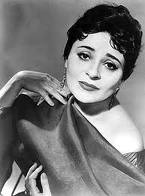Le Tribut de Zamora es una ópera en cuatro actos de Charles Gounod , su última obra para la escena. The libretto by Adolphe d'Ennery was offered to Gounod after negotiations with Verdi stalled, and involves a young couple on their wedding day, a forced tribute of twenty virgins, a slave auction at which the would-be groom is outbid, a madwoman who turns out to be the heroine's mother and regains her reason on murdering a tyrant, and a magnanamous second-in-command. El libreto de Adolphe d'Ennery se ofreció a Gounod tras las negociaciones con Verdi estancado, e involucra a una joven pareja el día de su boda, un tributo forzoso de veinte vírgenes, una subasta de esclavos en la que el aspirante a novio es superar la oferta, una loca que resulta ser la madre de la heroína y recupera su razón de asesinar a un tirano y un magnanamous segundo al mando.
The premiere at the Opéra ' s Palais Garnier on April 1, 1881 was a success, Hermosa's patriotic "Debout! enfants de l'Ibérie!" being enthusiastically encored. El estreno en la Ópera 's Palais Garnier de 01 de abril 1881 fue un éxito, Hermosa patriótica "Debout! enfants de l'Ibérie!" se repitiera con entusiasmo. Recent criticism is less kind, calling it "musty...too reminiscent of his earlier work" [ 1 ] or dismissing it as an exercise in " spagnuolismo " [ 2 ] Las recientes críticas es menos amable, llamándolo "mohoso ... nos recuerda demasiado a su anterior trabajo" [1] , o que desestime como un ejercicio de "spagnuolismo" [2]
Papel Voice type Voz tipo Creators Creadores
Xaïma Xaïma soprano soprano Daram Daram
Hermosa, her mother Hermosa, su madre soprano soprano Krauss Krauss
Iglésia, her friend Iglesia, su amiga soprano soprano Janvier Janvier
Manoël, her fiancee Manuel, su novio ténor ténor Sellier Sellier
Ben-Saïd, envoy of the caliph of Cordoba Ben Saïd, el enviado del califa de Córdoba baryton baryton Lassalle Lassalle
Hadjar, his brother Hadjar, su hermano basse basse Melchissédec Melchissédec
le roi, king of tenth-century Asturias LE ROI, rey de del siglo X Asturias basse basse Giraudet Giraudet
Acto 1. A square in Oviedo. En una plaza de Oviedo.
A choir introduces Manoël and Xaïma, two lovers who have to get married today; they share a strophique song (dawn serenade: " O blanc bouquet de l'épousée "). Un coro introduce Manoel y Xaïma, dos amantes que tienen que casarse hoy, que comparten una canción strophique (serenata alba: "¡Oh ramo blanc de l'épousée"). A brass band sounds the arrival of an Arabic delegation representing the caliph Abderrahhman, led by Ben-Saïd. He comes in Christian territory to demand the annual levy of hundred virgins, stipulated in the treaty signed after the defeat of the Christians at the battle of Zamora many years ago. Una banda de música los sonidos de la llegada de una delegación árabe que representa el califa Abderrahhman, dirigido por Ben Saïd. Viene en territorio cristiano a la demanda de la tasa anual de cien doncellas, estipulado en el tratado firmado después de la derrota de los cristianos en la batalla de Hace muchos años Zamora. Xaïma recalls certain details of this battle, hinting at the way the defenders sang a national anthem going into defeat. Xaïma recuerda algunos detalles de esta batalla, haciendo alusión a la forma en que los defensores de cantar un himno nacional de entrar en la derrota. Ben-Saïd struck by her beauty and character, declares his love for her. Ben Saïd golpeado por su belleza y carácter, le declara su amor por ella. Manoël intervenes and warns him that he is going to marry Xaïma in the coming hour. Manoel interviene y le advierte que se va a casar Xaïma en la hora siguiente. Ben-Saïd tells him not to be so confident, but the lovers sing a duet on their future (duet: " Pourquoi ce langage odieux? "). Ben-Said le dice que no estar tan seguro, pero los amantes de hacer un dueto en su futuro (dúo: "Pourquoi ce langage odieux?"). The king appears and announces that the city of Olviedo has to deliver twenty virgins this same day, his part of the annual levy. El rey aparece y anuncia que la ciudad de Olviedo tiene que entregar veinte vírgenes en esta misma fecha, su parte de la dotación anual. The name of the girls is drawn and, among them are Iglésia and Xaïma (finale: " Vous osez proférer "). El nombre de las chicas se redacta y, entre ellos están Iglesia y Xaïma (final: "Vous osez proférer"). Manoël and his fellow countrymen, chased away, sing their national anthem. Manuel y sus compatriotas, expulsados, cantan su himno nacional.
Acte II. Acte II. A lovely place on the banks of the oued el-Kédir in front of Cordoba. Un hermoso lugar a orillas del oued el-Kedir frente de Córdoba.
It's the anniversary of the victory of Zamora and a celebration takes place. Es el aniversario de la victoria de Zamora y la celebración se lleva a cabo. The lunatic Hermosa, captured in the battle, joins the festivities. El lunático Hermosa, capturado en la batalla, se une a las festividades. She is mocked, but Hadjar, brother of Ben-Saïd, orders that she be left in peace, quoting an aphorism of the Koran: " Consider as saints the madmen, otherwise be cursed. " Hermosa compares herself with a swallow who flew to heaven (scene and air: " Pitié, car je ne suis qu'une pauvre hirondelle "). The hundred virgins are brought in, in an elaborated procession. Ella se burla, pero Hadjar, hermano de Ben Saïd, las órdenes que se le dejara en paz, citando un aforismo del Corán: "Considerar como los santos locos, de lo contrario sea maldito." Hermosa se compara con una golondrina que volaba al cielo (escena y el aire: "Pitié, je ne suis coche qu'une pauvre hirondelle"). Los cien vírgenes se traen, en una procesión elaborados. Manoël, disguised as African soldier also made the journey. Manoel, disfrazado de soldado de África también han realizado el viaje. Hadjar recognizes him at once as the Spanish soldier who, in the fire of the battle, saved his life by closing his wound. Hadjar lo reconoce inmediatamente como el soldado español que, en el fuego de la batalla, le salvó la vida mediante el cierre de la herida. Hadjar suggests helping Manoël with all the measure of his means. Hadjar sugiere ayudar a Manoel con todas las medida de sus posibilidades. Manoël explain to him that the virgins are going to be sold by auction today and that he hopes to buy Xaïma's freedom. Before the sale, Hermosa sees Xaïma and pretends vaguely to recognize her; her remarks are pushed aside. Hadja supplies to Manoël a big sum of money, but Ben-Saïd's bid is nevertheless higher (finale: " A cent dinars d'or"). Manoel explicarle que las vírgenes van a ser vendidos en subasta hoy y que espera para comprar la libertad Xaïma. Antes de la venta, Hermosa ve Xaïma y pretende vagamente a reconocer su, su comentario se hizo a un lado. Hadja suministros a Manoel una gran suma de dinero, pero-Saïd Ben oferta es más elevada (final: "A dinares ciento d'or").
Acte III. Acte III. A large room in Ben-Saïd's palace. Una gran sala en el palacio de Ben Saïd.
Xaïma is a part of the household of Ben-Saïd. Xaïma es una parte de la familia de Ben-Said. He tries to cheer her up by giving a ballet, following which he asks her to accept his love (romance: " O Xaïma "). Hadjar enters with Manoël and introduces him as the Spanish soldier who saved his life. Él trata de animarla, dando un ballet, tras lo cual él le pregunta a aceptar su amor (el romance: "¡Oh Xaïma"). Hadjar entra con Manuel y lo presenta como el soldado español que salvó la vida. Ben-Saïd feels obliged to offer to Manoël any of his possessions. Ben Saïd se siente obligado a ofrecer a Manoel cualquiera de sus bienes. It is not material goods that Manoël desires but Xaïma; Ben-Saïd is so offended by this request that he orders his soldiers to seize him. No es que los bienes materiales, sino deseos Manoel Xaïma; Ben Saïd es tan ofendido por esta petición que él ordena a sus soldados para apoderarse de él. Xaïma interrupts by threatening to commit suicide and Manoël is freed. Xaïma interrumpe con la amenaza de suicidarse y Manoel es liberado. Ben-Saïd warns Xaïma that his love for her could turn around in blind hatred. Ben Saïd Xaïma advierte que su amor por ella podía dar la vuelta en el odio ciego. Hermosa enters raving, and begins to ask questions to Xaïma on her past (duet: " De sa mort qui donc parle ici? "). Hermosa entra en sus desatinos, y comienza a hacer preguntas para Xaïma sobre su pasado (dúo: "De sa mort qui parle donc ici?"). They learn that they were both present at the battle of Zamora; Hermosa sings the national anthem and finds reason; they discover soon that they are mother and daughter. Ellos aprenden que los dos estaban presentes en la batalla de Zamora; Hermosa canta el himno nacional y encuentra la razón, pronto descubren que son madre e hija.
Acte IV. Acte IV. The gardens of Ben-Saïd's palace. Los jardines del palacio-Saïd Ben.
Manoël returned to Ben-Saïd's palace, risking his life to see again Xaïma (cavatina: " Que puis-je à présent regretter? "). Manoel regresó a palacio-Saïd Ben, arriesgando su vida para ver de nuevo Xaïma (cavatina: "Que puis-je à présent regretter?"). She appears and they decide to commit suicide together (duet: " Manoël, sans moi tu veux mourir? "). Ella aparece y deciden suicidarse juntos (dúo: "Manuel, sans moi tu veux mourir?"). Hermosa intervenes and blames Xaïma to want to leave when they have just been reunited (romance: " Tu trouves donc "). Hermosa interviene y culpa a Xaïma a querer salir cuando se acaban de reunirse (romance: "Tu trouvés donc"). Manoël and Xaïma implore her forgiveness. Manuel y Xaïma implorar su perdón. Ben-Saïd tries again to win Xaïma's heart and, as she does not respond to his advances, he tries to force her (duet: " Lui! Manoël, encore! "). Ben-Said vuelve a intentar ganar el corazón Xaïma y, como ella no responde a sus insinuaciones, él intenta forzarla (dúo: "Lui! Manoel, bis!"). Hermosa reappears and tries to convince Ben-Saïd to let her daughter leave. Hermosa reaparece e intenta convencer a Ben Saïd que la dejara salir de su hija. Confronted to his stubborn refusal, she stabs him. Frente a su obstinado rechazo, le apuñala. Hadjar and a group of soldiers run up, but as they pull their swords around Hermosa, Hadjar reminds them of the aphorism of the Koran. Hermosa, Manoël and Xaïma is authorized to go away unhurt. Hadjar y un grupo de soldados corren, pero cuando pliegan sus espadas en todo Hermosa, Hadjar les recuerda el aforismo del Corán. Hermosa, Manuel y Xaïma está autorizado a desaparecer ileso.
jueves, 1 de julio de 2010
Suscribirse a:
Enviar comentarios (Atom)


















No hay comentarios:
Publicar un comentario